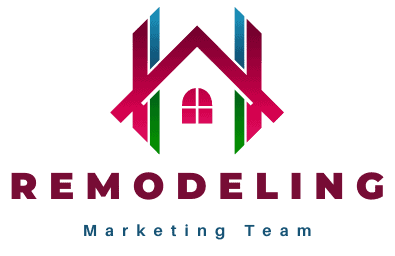Ethics in home remodeling sales isn’t just about good business—it’s the cornerstone of lasting success and client trust. This exploration highlights how transparent communication, honest pricing, and client-centered approaches not only foster trust but catalyze sustainable growth and profitability.
Key Takeaways
- Foundation of Trust: Ethical sales practices, such as transparent communication and honest pricing, are essential for building trust and long-term relationships with clients.
- Clear Communication: Using clear, jargon-free language and providing regular updates enhances client understanding and satisfaction, setting the stage for successful project outcomes.
- Transparent Pricing: Detailed, itemized quotes that explain costs transparently help clients understand their investments, fostering trust and reducing potential disputes.
- Client-Centered Approach: Prioritizing the client’s needs and preferences in sales strategies not only improves satisfaction but also increases the likelihood of repeat business and referrals.
- Ethical Problem Resolution: Promptly and transparently addressing unexpected challenges or project issues is crucial for maintaining trust and demonstrating reliability.
- Technology Utilization: Leveraging technology like CRM systems and client portals ensures transparency in communications and project management, reinforcing client trust.
- Continuous Training: Regular ethics training for all team members helps instill a culture of integrity and ensures consistent application of ethical standards across the company.
- Feedback Integration: Establishing effective feedback mechanisms allows for continuous improvement in service delivery and helps maintain high ethical standards.
- Ethical Supply Chain: Ensuring that all suppliers and subcontractors adhere to similar ethical standards as your business extends integrity throughout the project lifecycle.
- Strategic Ethical Planning: Integrating ethical practices into long-term strategic planning attracts quality partnerships, enhances business reputation, and supports sustainable growth.
Understanding Ethical Sales Practices
Ethical sales practices establish a framework of trust that protects businesses from legal risks and promotes a positive internal culture, enhancing productivity and employee morale. For instance, a hypothetical remodeling company, “GreenBuild,” has a code of ethics that includes transparency, accountability, and client-focused decision-making, which they review annually in company-wide workshops.
Action Steps:
- Develop a code of ethics that all team members must follow.
- Conduct regular training sessions to reinforce ethical behaviors and real-life scenario handling.
Building Trust through Honest Communication
Communicating honestly with clients sets clear expectations and builds a foundation of trust that is essential for successful project outcomes. For example, consider a scenario where “GreenBuild” uses clear, jargon-free language during consultations to explain the scope and potential challenges of a remodeling project, resulting in enhanced client understanding and satisfaction.
Action Steps:
- Utilize project management tools to provide clients with real-time updates.
- Schedule weekly meetings to discuss project progress and any concerns.
Transparent Pricing and Quotations
Transparent pricing empowers clients, giving them a clear understanding of where their investment goes. A hypothetical example involves “GreenBuild” providing a detailed quote that itemizes costs for labor, materials, and additional fees, along with a Q&A session to address any client questions about the pricing structure.
Action Steps:
- Create itemized, detailed quotes for every project.
- Offer a Q&A session after presenting the quote to address any client questions.
Client-Centered Sales Techniques
Adopting sales techniques that prioritize clients’ needs ensures that services are seen as solutions. Imagine “GreenBuild” conducting a detailed needs assessment during initial meetings, allowing them to tailor proposals that directly address the specific aesthetic and functional needs of their clients.
Action Steps:
- Train sales teams in active listening and needs assessment.
- Develop personalized proposals based on the specific needs and input from clients.
Dealing with Challenges Ethically
Ethically navigating business challenges shows reliability. In a hypothetical situation, “GreenBuild” encounters unexpected structural issues during a renovation that will require additional budget. They promptly inform the client, presenting options to adjust the project scope or budget in a transparent manner.
Action Steps:
- Establish a clear protocol for addressing and resolving project issues.
- Encourage transparency and immediate communication whenever challenges arise.
Leveraging Technology for Ethical Sales
Utilizing technology supports ethical sales by ensuring transparency. “GreenBuild” might use a CRM system to track all customer interactions and a client portal that provides access to project documentation and status updates, ensuring full transparency and enhancing client trust.
Action Steps:
- Implement a CRM system to track all customer interactions.
- Use client portals to give clients access to real-time project information.
Training and Development for Ethical Sales Culture
Regular training helps instill a culture where ethical decisions are valued. Role-playing exercises might involve “GreenBuild” employees handling hypothetical ethical dilemmas, such as dealing with subcontractor errors or handling client dissatisfaction.
Action Steps:
- Schedule regular ethics training with practical examples and role-playing.
- Create a reward system for employees who demonstrate exemplary ethical behavior.
The Impact of Ethical Sales on Business Growth
A strong ethical foundation increases client retention and attracts new clients through positive word-of-mouth. Suppose “GreenBuild” is known for its integrity, leading to an increase in client referrals and reduced marketing costs as satisfied clients become advocates for the business.
Action Steps:
- Monitor client satisfaction and feedback to gauge the impact of ethical practices.
- Use positive client testimonials in marketing materials to highlight the company’s commitment to ethics.
Conclusion
Integrating ethical sales practices into every aspect of operations ensures not only compliance but also a competitive edge in the marketplace. It leads to satisfied clients who are eager to return and recommend, which is essential for any business looking to thrive in today’s market.
This version incorporates hypothetical examples and detailed action steps, giving a clear roadmap for remodeling companies looking to enhance their ethical practices. These examples underscore the benefits and practicalities of implementing robust ethical practices in everyday operations. Let me know if you’d like to adjust or expand on any sections further!
FAQs (Frequently Asked Questions)
What are ethical sales practices in home remodeling?
Ethical sales practices involve conducting business in a manner that is transparent, honest, and client-focused. This includes providing clear and comprehensive communication, itemized and transparent pricing, and prioritizing the client’s needs and expectations throughout the sales and project process.
Why is transparency important in pricing?
Transparency in pricing builds client trust by clearly explaining costs and fees associated with a project. It helps avoid misunderstandings and disputes, ensuring clients feel informed and in control of their spending decisions.
How can honest communication affect a remodeling project?
Honest communication sets clear expectations and helps prevent misunderstandings that can lead to dissatisfaction. It ensures that clients are fully informed about the scope of work, potential challenges, and project progress, which enhances client satisfaction and trust.
What role does technology play in ethical remodeling sales practices?
Technology, such as CRM systems and client portals, supports ethical practices by providing a transparent way to track all customer interactions, project progress, and agreements. This helps maintain clarity and accountability, ensuring all parties are informed and can trust the process.
How can I ensure my subcontractors and suppliers adhere to ethical standards?
Establish clear ethical standards and communicate these expectations to all subcontractors and suppliers. Consider incorporating ethical clauses in contracts and perform regular audits to ensure compliance. Choosing partners who share similar values and ethical standards is also crucial.
What are some common ethical dilemmas in home remodeling sales?
Common dilemmas may include handling unexpected project overruns, dealing with subcontractor mistakes, or managing changes in project scope. Ethical handling involves transparent communication with the client about issues and collaborative decision-making on solutions.
How does ethical behavior impact business growth in home remodeling?
Ethical behavior builds a strong reputation, fosters client loyalty, and increases referrals, which can lead to sustainable business growth. It distinguishes a company in a competitive market, attracting clients who value integrity and transparency.
What is the importance of training in maintaining ethical sales practices?
Training ensures that all team members understand the company’s ethical standards and how to apply them in various situations. Regular training updates skills, addresses new ethical challenges, and reinforces the importance of integrity in all business dealings.
How should feedback be integrated into ethical sales practices?
Feedback should be actively sought from clients post-project to gauge their satisfaction and gather insights on areas for improvement. Implementing changes based on this feedback demonstrates a commitment to service excellence and ethical improvement.
How can I handle negative feedback ethically?
Address negative feedback promptly and openly. Investigate the issue, communicate openly with the client about the findings, and take clear, corrective actions where necessary. This approach shows a commitment to rectifying issues and maintaining high ethical standards.
This article is a collaboration between Carl Willis and OpenAI’s ChatGPT. Created on May 3, 2024, it combines AI-generated draft material with Willis’s expert revision and oversight, ensuring accuracy and relevance while addressing any AI limitations.






